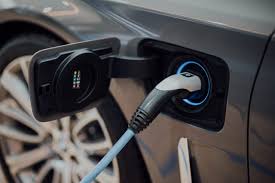Industry watchers say it’s only a matter of time before Chinese automakers bring their impressive — and importantly, inexpensive — electric cars to the US. After years of threatening to set up shop in America, the companies are closer than ever to making the move.
On their home turf, Chinese companies have already vanquished their American competitors, eating up market share from the likes of Ford and General Motors by offering better quality and less expensive electric cars for shoppers. They’ve started exporting a slew of brands to Europe too.
As Chinese car-industry leaders like Nio and Geely eye a move to the States, the question is whether they can overcome political frictions – and whether American buyers will go along for the ride?
“It’s going to be an interesting couple of years ahead to see whether Ford and GM and the like can stave off that Chinese competition coming in,” Martin French, a managing director at the consultancy Berylls, said. “From what we saw at the Shanghai auto show this year, that competition is very, very real.”
China’s EV industry has exploded in recent years. In 2022, US EV sales hit a new high of 800,000, while Chinese buyers snapped up some 5 million electric passenger vehicles. After years unchallenged, Tesla is about to lose its crown as the world’s largest EV maker to a Chinese company, BYD.
Toyota, Hyundai, and now BYD
In the 1970s, Japanese car companies like Toyota and Honda swooped in with affordable and fuel-efficient vehicles that knocked US carmakers on their heels. More recently, Hyundai, Kia, and other Korean brands have been eating Ford and GM’s lunch on SUVs.
History may repeat itself. Chinese EV manufacturers can gain a foothold in the US by coming in at a budget price point, analysts said.
hina is winning on prices
American brands — including Tesla — have been promising a long-range EV option priced at or below $30,000 for years. But progress has been slow and sometimes regressive. GM plans to cancel the Bolt EV, America’s cheapest EV, by the end of 2023 and use that factory to build pricey electric pickups instead.
Meanwhile, Chinese brands are unmatched in affordability on their home turf and in Europe.
One of China’s most popular EVs is the Wuling Hong Guang Mini, a minuscule city car that costs roughly $5,000. At the Shanghai auto show last month, BYD launched the Seagull, a stylish, pint-sized hatchback with an estimated range of 190 miles. Its starting price? Under $11,000.
Tu Le, the managing director of Sino Auto Insights, a consulting firm that specializes in the Chinese auto industry, said Chinese firms aren’t skimping on quality for the sake of affordability.
“They have the products to back it up,” he said. “I’ve driven a number of the Chinese EV brands, and boy oh boy, the Europeans are in trouble.”






Wow, incredible weblog format! How long have you
been running a blog for? you made running a blog look easy.
The full look of your web site is magnificent, as neatly as the content material!
You can see similar: najlepszy sklep and
here najlepszy sklep